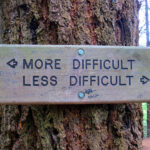Price your anger so expensive until no one can pay to see it. – HereTheQuotess

Anger is a choice. Choose to charge them more if they want to see your anger. Don’t give it away for free!
What does that mean?
There are times when others push us towards anger. In my opinion, this quote is asking us to raise the price of our anger.
Not in a sense of increasing the repercussions or the cost of being angry (that’s already high enough), but to raise how much they have to pay to get to see it in the first place.
If they can’t afford to pay you to get angry, then you don’t give your anger away freely. While that’s not to say that anger is a precious commodity to be protected, I believe it’s worth looking at anger in a completely different manner.
Why is managing anger important?
We all get angry, and anything we can do to reduce the frequency or intensity is, in my opinion, a good thing. By changing our attitude towards anger, we can take a big step. If we can treat anger like happiness, and decide when we will be happy and when we will be angry, we can in each case choose happy and dismiss anger.
If we take the path of this quote and treat anger as a thing the other person has to pay you to show them, you become more protective of it, and stop giving it away for free. Can you see how either of those attitude changes towards anger could change how often or how intensely angry you would become at any time?
As mentioned, the cost to each of us when we get angry is often far too high. Words said in anger are seldom the best spoken. Have you ever become angry and said something you later regretted? It can happen with friends, at work, or even among strangers. No matter where or when, anger always has a cost.
Perhaps we could extend the extreme pricing of our anger, until even we cannot afford to pay to see it. Imagine your life, and how different it would be, if you became irritated, upset or aggrieved instead of angry.
Where can I apply this in my life?
At times I have had trouble with my temper. Sometimes it was a slow boil that took weeks to build. Other times I just snapped. But each time I got to that point, I was giving it away for free instead of charging them a high price. And it never ended without some damage being done to people, things, or relationships.
In a large book store or library, anger management will have a very large selection of material available to read. You could always pick one and start reading. While we are all unique in exactly what will set us off, under which circumstances, or how many times it might take, there are some things we can all do to get better at managing anger.
For me, the first thing to do was to de-intensify the word. If you try to rank everything from mildly upset or disappointed to murderous rage, you might find you aren’t as angry as you thought. If you can find a different word for your state of emotion, you may find it easier to not be angry if you’re only moderately disappointed.
If you choose to actively refuse to become angry, as it is an emotion over which we have some control (like happiness), you can practice not becoming angry, or choosing to be only moderately disappointed or some other word of your choosing. We do have some control over this, and with practice, you can learn to point and laugh when someone tries to provoke you.
But to change, it helps to have motivation. Take a moment and think of the last few times you became truly angry, and what the price was you paid. Did you hurt someone (even yourself)? Did you break something? Did you damage a relationship? What would you give to have that moment back, and to make a different choice?
Your motivation can help you stay true to the path of pushing back against your anger. If you feel it building, promise yourself to make them try harder, to pay more to see it. Recall your regret, shame, or hurt, and use it to steel yourself to ignore it or to choose happiness over anger. At least give yourself a chance to turn away or to lessen anger to something less.
We all have a choice to make when we start down the path of anger. We can let it build like a snowball until it is too big to stop, or we can make choices which divert the snowball and park it before something or someone gets wrecked. To wreck, or not to wreck. That is the question. What is your answer?
From: Twitter, @HereTheQuotess
confirmed at : It is nowhere else on the net, so I presume it is original.
photo by Robert McGoldrick







Another great post.
Again, I’d like to refer you to the book “Our X Factor”, which has a whole chapter dedicated on anger. What’s important to understand with anger is the root cause why we are prone to becoming angry. Often when anger misleads us, we hurt innocent bystanders because they are not the true source for the misgivings or bad feelings we harbor inside. The people or instances that we believe make us angry are merely a reminder of something much deeper we need to address.
Good continuance.
Xavier
Thanks for stopping by. I don’t usually leave product comments stay, but this looks like a useful resource.
Suggestion to philosiblog: I like you blog. But please post readers’ comments as soon as they are submitted, not several days later when you had a chance to look at them and have a response ready for them. That way others can also post follow up comments on it, not just you. I see no problem moderating the comments section, but if you wait too long to post the comments, people might lose interest in your blog. JMHO.
Thanks for stopping by and for leaving a suggestion.
Unfortunately, the blog is sufficiently popular that it gets a lot of spam. If I were to allow posts to show up immediately, I would have to either be on the blog at least once daily, or risk having nasty spam all over the place. It is not ideal, but it is what works for me. I will work to be more attentive to the comments and try to get to it a few times a week, and that may help.
As for others losing interest, I cannot control what others do. If you think that the timeliness (or lack thereof) has an influence on the interest others have in the blog, then I shall do what I can to be more timely. Ultimately, they either do or do not have interest in the blog.
As an aside, the number of people who leave comments is not a statistic I put much emphasis on. That may also play into my frequency of answering comments.
Thanks for the thoughts, and I’ll put some effort into being on & answering comments a bit more often.
You are right, we can get a lot of things accomplished by just acting to be angry than really lose it all. Controlled aggression is a fine art and can only be learnt by practice.
“you can learn to point and laugh when someone tries to provoke you ” — not always. If you do that too much, some people will take that as your weakness. Bad things that are usually said behind your back will now be said on your face which will only make you more angry.
Thanks for taking the time to leave a comment.
I didn’t explain myself very well, it appears. The idea wasn’t to fake being angry for gain, it was to allow anger to pass and never catch it in the first place. As for controlled aggression, it is a blunt weapon at best, and only desirable when the only other option is open aggression or a fight.
I must respectfully disagree with you about learning to be unresponsive to those who provoke you. Our anger is our choice of response to the action of another. Nothing more. We choose. Anger or laughter, rage or humor, hatred or love, it is a choice. Saying you have no choice is voicing helplessness or unwillingness to act in that manner. We always have that choice. It isn’t always easy, nor is it always fun. But it can be practiced, and eventually it will be as natural as breathing, or deciding to be happy.
While some may think that what they say behind my back or to my face is important, I don’t care. I have been called worse things by better people. Their words only have the power I choose to give them, and I give them no power. As for what the other people who hear their words are concerned, if they know me, they know what those words mean to me. For those who do not, my actions will speak far louder than the other person’s words.
And if it comes to violence, I am capable of defending myself. But what does that prove? It doesn’t prove the truth of their words nor does it prove my ignoring them is the better path. It only proves who is a more efficient fighter, and I know a lot of tricks. Big deal.
I will admit that my viewpoint on life is a bit out of what is considered normal. But how much better would your life be if you could never be angry again? If you could be happy by choice and not angry by choice, and choose each of them exactly when you choose, and in a manner which serves you best? Would it be better or not?
Not sure I understand, Ive seen people get angry and get what they want. some people are skilled at this. not me. Ive suppressed anger and it often is not a satisfactory solution. Sometimes giving up and writing off unfairness, unethical behavior, irresponsibility, unaccountability is wrong but if you cannot channel your instincts into a coherent and meaningful message you are stuck. especially if you are an ant and the oppressor is a giant. we only hear about David who slew goliath, not the hundreds of nameless proto davids that failed.
keep writing, I like to think about your posts
Thanks for stopping by, and for leaving a comment.
When someone gets angry and people placate them (in essence paying them off to quit being angry, or to not escalate from angry to violent), they are missing what is happening to the relationship between the angry person and everyone else. Are they loved and respected? Or simply feared? What would happen if one of the people who normally roll over became angry enough to stand up to them? Is that a good, just, and helpful way to live?
As for repressing the anger you feel, this quote is attempting to address the root of that problem. Simply do not become angry in the first place. If I called you a “scruffy Nerf herder” would you be insulted? Would you become angry? The words they use on you only have the meaning you choose to give it. Pick any insult which would normally invoke an angry response in you, and replace it with “scruffy Nerf herder” and say it again. Does it lose it’s bite? If you can ignore one set of words, why not ignore the others? It isn’t an easy choice, but it is a choice which you can make.
Something else you mention is unfairness, unethical behavior, irresponsibility and accountability. Do you have control over these things? Can you make the world (which is naturally unfair) be fair? If not, why are you worrying about it? Why does it bother you that nature is following it’s course? As for the other three, the only control you have over them is in yourself. So long as you do not violate those principles, what more can you do? Unless you’re willing to don a cape and mask and fight unethical behavior as a superhero/vigilante, what can you do? Are you going to allow something over which you have no control, determine your mood or state of mind? Does it make sense?
As for David and Goliath, does it matter? If you go forth and do your best, does anything else matter? If you have done all that is within your ability to control, and it wasn’t enough, you have to remember the world is unfair. Name a cause or a war you support. How many people died before victory was achieved? All those nameless proto-Davids did the best they could, and eventually victory was achieved.
This is a tough post to read, because it challenges the very concept of anger, and the source of it. In this post I posit that anger exists only within ourselves, and only we have the ability to control it in any way, shape or form. If we give that power to someone else, we have become the puppet to their puppet-master. They say the word, pull the string, and we respond. We can choose to cut the string, but only if we release the hold the word has over us. The same goes for actions which are unfair, unethical, etc. We choose the meaning, and assign the anger, and dance to the puppet-master’s tune. We can also choose to shake our heads and wonder how that person became so damaged that they think this is the best way they can cope and live in the world.
I hope that helped shed some light on what I meant.